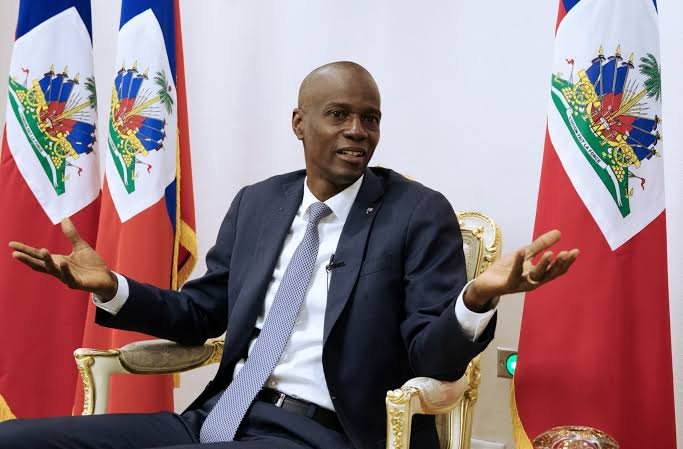Physical Address
304 North Cardinal St.
Dorchester Center, MA 02124
Physical Address
304 North Cardinal St.
Dorchester Center, MA 02124

Justice for Jovenel Moise: The Foundation for Haiti’s Safer Future
On the night of July 7, 2021, the world stood still as news emerged that Jovenel Moise, the president of Haiti, had been assassinated in his residence. A man tasked with leading a nation through one of its most politically fragile periods met a violent and untimely end, plunging Haiti into even deeper uncertainty. Moise’s presidency had been marked by immense controversy—allegations of corruption, ongoing anti-government protests, and mounting dissatisfaction among Haiti’s populace. Yet, regardless of one’s perspective on his leadership, his assassination exposed the raw vulnerability of the Haitian state. Just as Haiti bore the scars of foreign interference, corrupt governance, and deteriorating state institutions, this tragedy underscored one irrefutable truth: the Haitian people deserve justice, both for Jovenel Moise as an individual and for the broader implications left in the wake of his death.
Behind the headlines of Haiti’s political instability lies a story of resilience and resistance. Haiti—a nation born from the world’s only successful slave revolt—has historically been punished for its audacity to defy global systems of oppression. Its justice system has long been manipulated by external forces and internal elites, leaving the mass population disillusioned by the false promises of reform and self-determination. Understanding the conditions that led to Moise’s presidency and violent demise requires us to uncover layers of political engineering, systemic injustice, and external influence.

Haiti’s struggle for justice has never been limited to individual leaders; it is a fight rooted in its post-revolution identity. From its independence in 1804, Haiti has faced economic blockades, constant foreign interferences, military invasions, and unrelenting burdens of foreign debt. Each act of retribution has shaped the fragile political landscape now infamous for corruption and instability. International powers—particularly the United States, France, and post-independence global leaders—have played deeply embedded roles in destabilizing Haiti to ensure its full sovereignty and autonomy remained weakened.
Unresolved cases like the assassination of Jovenel Moise serve as microcosms of Haiti’s broader systemic injustice. How do justice systems function in a nation where courts are politicized, police forces are underfunded, and foreign interventions benefit from chaos? The aftermath of Moise’s death has seen little clarity from investigations. Instead, speculation and conspiracy theories swirl, implicating actors from local politicians to international mercenaries. Such narratives resonate with Haiti’s painful history of leaders who have been violently dethroned, often at the behest of powerful actors wanting to maintain control.
The fragility of Haiti’s institutions did not occur overnight. Decades of exploitation—both internal and external—have left Haiti in a state of perpetual rebuilding. Moise’s assassination signifies the culmination of unchecked corruption, unrest, and the collapse of public trust. But where does blame truly reside? In unpacking this moment, it becomes evident that no justice for Jovenel Moise can be achieved without addressing the system that allowed such an act to occur.
For decades, authoritarianism and clientelist politics have bred divisions within Haiti’s ruling class. This dynamic is reinforced by international organizations, whose investments rarely prioritize long-term institution building over immediate “crisis management.” The assassination of a head of state represents not just a failure in governance but an indictment of the conditions fostered by those benefiting from Haiti’s instability. Political murders, mass kidnappings, and gang warfare have become symbols of a state unable—or unwilling—to protect its citizens. Solutions must address the roots: weak judiciary mechanisms, proliferation of foreign meddling, and lack of equity in leadership.

Justice for Jovenel Moise is more than solving a murder mystery—it’s a reflection of Haiti’s endless struggle for fair governance and safety for its citizens. Without resolving historical injustices, Haiti will remain in the shadow of its turbulent history. The vacuum left by Moise’s assassination has deepened polarization among factions vying for power, further destabilizing a nation already on edge.
Justice must become the centerpiece of a re-imagined Haitian future—not an occasional priority, but a systemic transformation led by an empowered judiciary and backed by widespread civic participation. It also depends on reducing external exploitation and holding both local and international actors accountable for destabilizing the country. This includes reevaluating how donor funds, foreign aid, and investments are channeled to bolster Haitian sovereignty rather than strengthening corrupt elites.
To achieve justice for Jovenel Moise and build a safer Haiti, we must demand transparency and reject the normalization of violence, corruption, and impunity. As members of the global Haitian diaspora and global civil society, our collective voice has power. Supporting grassroots organizations, amplifying the voices of everyday Haitians, and calling out international manipulation are critical steps in this journey. Education about Haiti’s history and advocating for diplomatic solutions over foreign domination are pivotal ways to restore not just peace but dignity to a nation that deserves it.
Moreover, we must recognize that Jovenel Moise’s story is not his alone; it represents the lived experiences of 12 million Haitians who face violence, uncertainty, and systemic neglect every day. By demanding justice for the people, we take the first step toward honoring Haiti’s revolutionary legacy.

Justice for Jovenel Moise is not just about closure for a tragic moment; it is about setting the standard for Haiti’s future leaders. If Haiti’s most prominent figures cannot be protected or avenged, what hope exists for the average citizen? The fight for justice is inseparable from the fight for national sovereignty, human dignity, and a redefined future for Haiti. The world owes Haiti more than pity—it owes action, solidarity, and respect. Only through these efforts can Haiti honor its past while forging a safer, more just future.